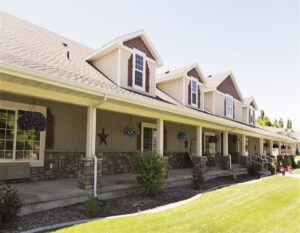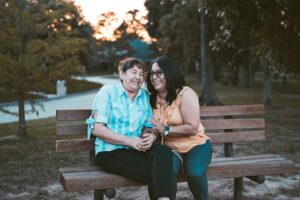Page Contents
The concept of filial piety, deeply rooted in Asian cultures, emphasizes the importance of respecting and caring for one’s elderly parents. As societies evolve and family structures change, the traditional values of filial piety often clash with modern challenges, leading many to question whether sending elderly parents to nursing homes is compatible with this cherished cultural principle.
In this blog, we will explore the nuances of filial piety, assess the mindset behind sending elderly parents to nursing homes, and discuss the evolving needs of the elderly in today’s world. We will also explore possible ways to strike a balance between tradition and modernity.
Trends in eldercare
Over the years, there has been a significant shift in how elders are cared for, especially in Western and Asian societies. With changing family dynamics, shrinking family size, increased urbanisation, and the demands of modern life, the traditional model of multiple generations living under one roof has become less common. Consequently, nursing homes and assisted living facilities have gained popularity as alternative options for eldercare in many countries.

Filial piety in Western and Asian cultures
In Asian cultures, particularly in countries like China, Japan, and Korea, filial piety is a revered virtue. It embodies the duty of children to provide physical, emotional, and financial support to their ageing parents. This concept often includes the expectation that parents will live with or near their children as they age. In contrast, Western cultures have a more individualistic approach, emphasizing personal autonomy and self-reliance. However, many Western societies still value caregiving and support for elderly parents but may employ different methods, such as home care or nursing homes.
Is sending parents to a nursing home against filial piety?
The question of whether sending elderly parents to nursing homes goes against the principles of filial piety is complex. While it may be perceived as a departure from traditional norms in some Asian cultures, it is not necessarily a rejection of filial piety itself. The decision to place a parent in a nursing home should be evaluated on a case-by-case basis, taking into account the elderly person’s health, preferences, and the family’s circumstances.

Elderly’s safety and needs against social norms
The evolving needs of the elderly often necessitate a reassessment of traditional values. In some cases, ageing parents may have complex medical conditions that require specialised nursing care that is best provided by professionals in a nursing home setting.
On the other hand, it is not uncommon that there are elderly parents who choose to stay in nursing home as they do not want to be a burden to their children and family members. Moreover, elderly individuals may desire the companionship and activities that nursing homes can offer, which may not be available in a traditional family home. It is crucial to prioritise the elderly’s well-being and preferences while still upholding the spirit of filial piety.
Possible ways moving forward
- Open communication
Families should engage in open and honest conversations about eldercare options. This includes discussing the wishes and preferences of the elderly parents themselves, as their voices should be central to the decision-making process. - Innovative eldercare models
Consider hybrid models that combine aspects of traditional caregiving with the benefits of professional care. For example, some families hire in-home caregivers to provide assistance while still allowing the elderly to live in a familiar environment. - Community support
Communities can play a significant role in supporting elderly individuals. This includes creating senior centers, offering transportation services, and organising social activities to combat loneliness. - Legal and financial planning
Families should plan ahead by addressing legal and financial matters, such as creating living wills, power of attorney documents, and setting up savings for potential eldercare needs.
Conclusion
Filial piety remains a crucial cultural value in many societies, but it must adapt to the changing realities of the modern world. The decision to send elderly parents to nursing homes should be made with empathy, respect, and a focus on the well-being of the elderly individuals. By considering their needs and preferences alongside traditional values, families can strike a balance that honours both the past and the future of caregiving. Ultimately, the most important aspect of filial piety is the love and respect children hold for their parents, regardless of the caregiving model chosen.
